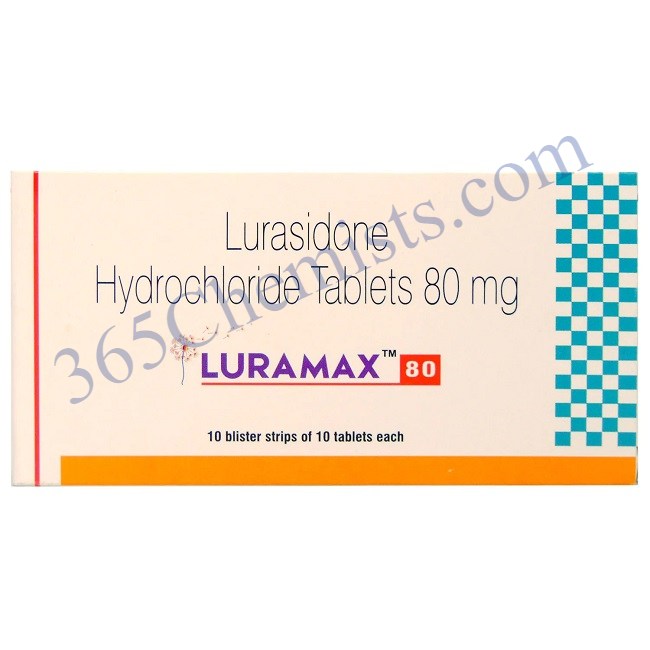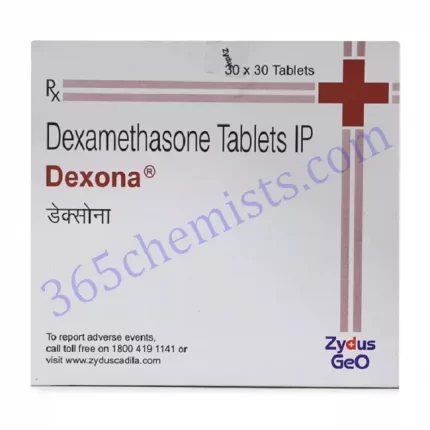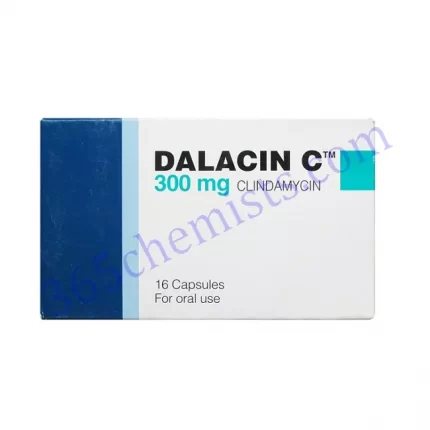Description
Luramax 80 Tablet is an antipsychotic medicine used for the treatment of schizophrenia and bipolar depression. For the treatment of schizophrenia, this medicine is not recommended for use in patients less than 13 years of age. For the treatment of bipolar depression, this medicine is not recommended for use in patients less than 10 years of age. It is not recommended for use in elderly patients suffering from dementia-related psychosis due to the increased risk of death.
Substitutes
List of substitutes for Luramax 80 Tablet
Unisidon 80 Tablet
Torrent Pharmaceuticals Ltd.
Side effects
Major & minor side effects for Luramax 80 Tablet
Difficulty with swallowing
Slurred speech
Stiffness of arms and legs
Blurred vision
Chest pain or discomfort
Headache
Unusual tiredness or weakness
Loss of appetite
Cough
Uses of Luramax 80 Tablet
What is it prescribed for?
Schizophrenia
This medicine is used in the treatment of schizophrenia, a disorder which affects the patient’s ability to think, behave, and feel.
Bipolar Depression
This medicine is used in the treatment of bipolar depression, a condition characterized by symptoms such as low motivation, low energy, loss of interest in daily activities, mood changes, suicidal thoughts, etc.
Related Products
List of related products
Luramax 40 Tablet
When not to use?
Allergy
This medicine is not recommended for use in patients with known allergy to lurasidone or any other inactive ingredients present along with it.
Strong CYP3A4 inhibitors
This medicine is not recommended for use in patients receiving therapy with strong CYP3A4 inhibitors such as ketoconazole, clarithromycin, voriconazole, etc. due to the increased risk of serious adverse effects.
Strong CYP3A4 Inducers
This medicine is not recommended for use in patients receiving therapy with strong CYP3A4 inducers such as rifampin, phenytoin, carbamazepine, etc. due to the increased risk of worsening of the patient’s condition.
Warnings
Warnings for special population
Pregnancy
This medicine is not recommended for use in pregnant women unless absolutely necessary. All the risks and benefits should be discussed with the doctor before taking this medicine.
Breast-feeding
This medicine is not recommended for use in breastfeeding women unless absolutely necessary. All the risks and benefits should be discussed with the doctor before using this medicine. Your doctor may advise you to discontinue the drug or to discontinue breastfeeding based on your clinical condition.
General warnings
Suicidal ideation
This medicine may increase the risk of suicidal thoughts in some patients. Patients should be monitored closely for any changes in behavior or mood. Appropriate dose adjustments or replacement with a suitable alternative may be necessary based on the clinical condition of the patient.
Tardive dyskinesia
This medicine may cause tardive dyskinesia in some patients. This may result in symptoms such as involuntary movements of the tongue, lips, and face. Patients should be monitored closely for any such symptoms. Appropriate dose adjustments or replacement with a suitable alternative may be necessary based on the clinical condition of the patient.
Elevated blood glucose levels
This medicine should be used with caution due to the increased risk of elevated blood glucose levels. This risk is especially higher in patients with a history of diabetes mellitus. Close monitoring of blood glucose levels, appropriate dose adjustments, or replacement with a suitable alternative may be required in some cases based on the clinical condition of the patient.
Use in pediatrics
For the treatment of schizophrenia, this medicine is not recommended for use in patients less than 13 years of age. For the treatment of bipolar depression, this medicine is not recommended for use in patients less than 10 years of age.
Prolonged QT interval
This medicine should be used with caution in patients with a known history of prolonged QT intervals due to the increased risk of worsening of the patient’s condition. Report any unusual symptoms such as difficulty breathing, changes in heart rate, etc. to the doctor immediately. Close monitoring of clinical condition, appropriate dose adjustments, or replacement with a suitable alternative may be required in some cases based on the clinical condition of the patient.
Driving or Operating machinery
Use of this medicine may cause symptoms such as blurred vision, dizziness, sleepiness, etc. in some patients. It is advised that you do not perform any activities such as driving a vehicle or operating machinery if you experience any of these symptoms during treatment with this medicine.
Dosage
Missed Dose
The missed dose should be taken as soon as possible. It is advisable to skip the missed dose if it is already time for your next scheduled dose. Do not use extra medicine to make up for the missed dose.
Overdose
Seek emergency medical treatment or contact the doctor in case of an overdose.
Interactions
All drugs interact differently for person to person. You should check all the possible interactions with your doctor before starting any medicine.
Interaction with Alcohol
Description
N/A
Instructions
Consumption of alcohol is not recommended during treatment with this medicine due to the increased risk of severe side effects such as dizziness, difficulty in concentration, impaired judgment, etc. It is advised that you do not perform any activities that require high mental alertness such as driving a vehicle or operating machinery if you consume alcohol during treatment with this medicine.
Interaction with Medicine
Atazanavir
Bupropion
Fluconazole
Codeine
Erythromycin
Disease interactions
Seizures
This medicine should be used with caution in patients with a known history of seizure disorder due to the increased risk of worsening of the patient’s condition. Close monitoring of clinical condition, appropriate dose adjustments, or replacement with a suitable alternative may be necessary based on the clinical condition of the patient.
Diabetes
This medicine should be used with caution in patients with a known history of diabetes due to the increased risk of elevated blood glucose levels. Close monitoring of blood glucose levels is recommended for such patients. Appropriate dose adjustments or replacement with a suitable alternative may be required based on the clinical condition of the patient.
Dementia
This medicine is not recommended for use in patients suffering from dementia-related psychosis due to the increased risk of worsening of the patient’s condition as well as death. Replacement with a suitable alternative should be considered based on the clinical condition of the patient.
Neuroleptic Malignant Syndrome (NMS)
This medicine is not recommended for use in patients with a known history of a neuroleptic malignant syndrome (NMS) due to the increased risk of worsening of the patient’s condition including a recurrence of NMS. Close monitoring of clinical condition, appropriate dose adjustments, or replacement with a suitable alternative may be required based on the clinical condition of the patient.
Food interactions
Consumption of grapefruit juice is not recommended during treatment with this medicine due to the increased risk of severe adverse effects such as seizures, Parkinson-like symptoms, heat intolerance, high cholesterol levels, etc.
Lab interactions
Information not available.
This is not an exhaustive list of possible drug interactions. You should consult your doctor about all the possible interactions of the drugs you’re taking.
General Instructions
Take this medicine with food (at least 350 calories). Do not take in larger or smaller amounts than advised/prescribed. Consult the doctor if you experience any undesirable side effects. Ensure that the treatment course is completed. Do not stop the use of this medicine without consulting your doctor.












